6. The Night of the Hunter
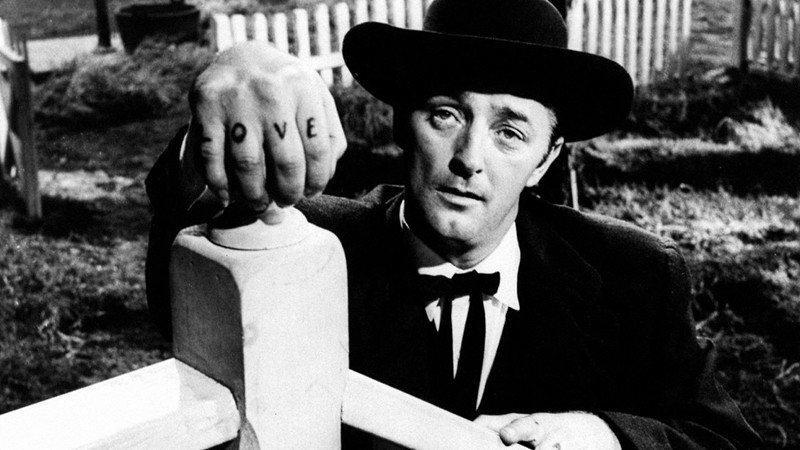
This film perfectly captures the surreal feel of a child’s nightmare, with a villain who would terrify those of any age. When a smooth talking, murderous preacher moves into town and starts romancing a local widow, her two children are the only ones who see his true motive.
The preacher, played with devilish glee by Robert Mitchum, torments the children until they are forced to run away from home to protect their secret which he seeks. This black-hatted clergyman is one of cinema’s all-time great villains, and the sound of him crooning the old hymn “Leaning on the Everlasting Arms” makes for an unforgettable horror soundtrack.
The stark black and white cinematography echoes the battle between good and evil which it shows on screen. Sharp, angular lines contribute to the viewer’s sense of unease, and evoke the dread that the young protagonists must surely be feeling – alone in a big world.
A classic unlike any other, The Night of the Hunter is a beautiful escapist horror film, and one of the crown jewels of cinema.
7. Aguirre: The Wrath of God
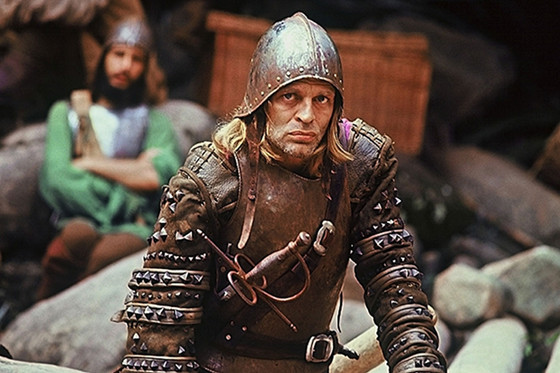
In Werner Herzog’s classic film, a small band of Spanish conquistadors serves as a microcosm in which the follies of greed and lust for power are examined. In search of the mythical El Dorado, the group is torn apart by jealousy and warring factions.
Persisting by river into the dense Peruvian jungles long after reason had bid them turn back, their descent into madness is a slow but steady burn. By the time they elect one of themselves emperor and start claiming ownership of all the land they can see, the situation is manifestly ridiculous.
One thing that makes this film effective, though, is that it never preaches. The director isn’t setting up easy laughs at his greedy subjects, but his measured presentation of the events reveals their absurdity.
As always, Herzog films on location and though this led to notoriously complicated shoots during his career, the results here are more than worth it. Because the actors are actually performing in difficult circumstances, their work feels especially authentic and organic – one easily forgets that this is a movie while watching it. Easily one of the most perfectly realized visions in cinematic history, Aguirre: The Wrath of God is a study in both human nature and in film craft.
8. There Will Be Blood
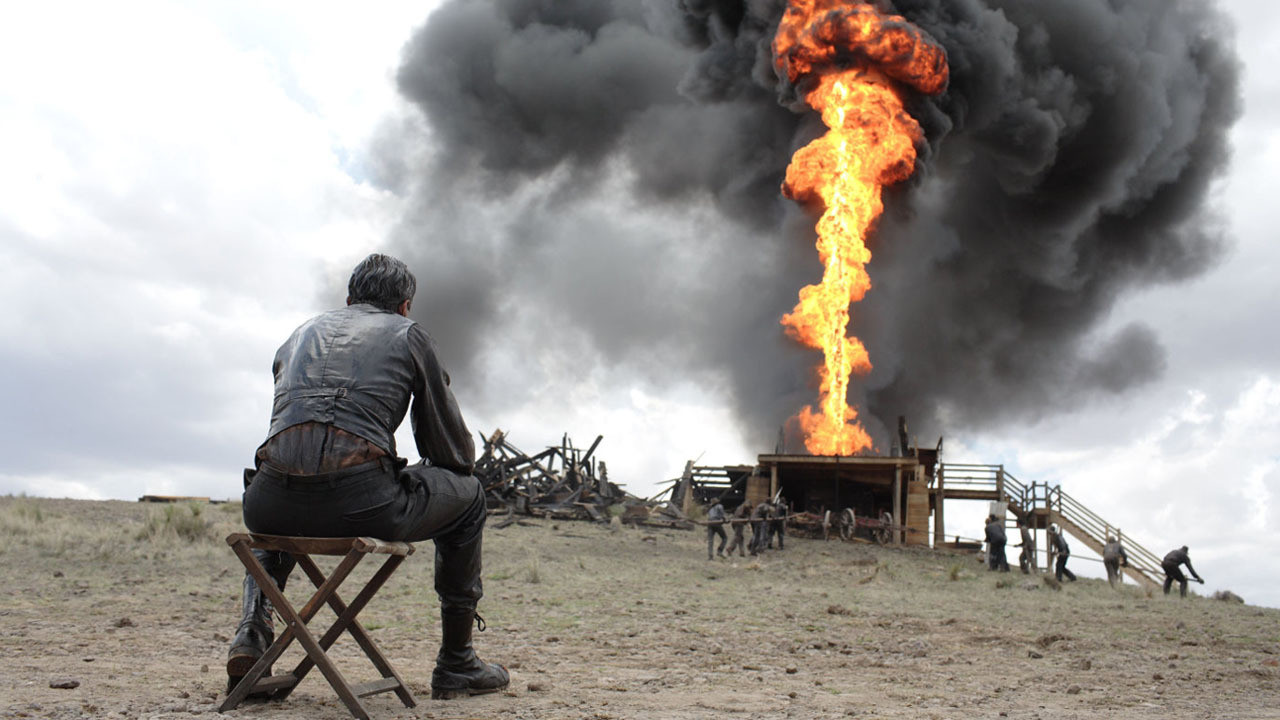
The opening minutes of this film are dominated by its hypnotic soundtrack; its mysterious power pulls us in, and we’re hooked for the entire runtime.
The music and the direction serve similar functions in There Will Be Blood – both are there to serve, and not attract attention. They serve the story, which is an early American example of the battle between Church and State and the hunger for power often found on each side. They also serve the performances, which are towering; the low-key directing style allows Daniel Day-Lewis, especially, to seem a more giant figure on the screen.
It is Day-Lewis’s acting for which this film is perhaps best known, and deservedly so; he literally creates this character from the inside-out, and delivers one of the truly great performances in the history of cinema. But the story had to be big enough to contain the actor, and this element should not be overlooked.
The movie is based on Upton Sinclair’s novel, Oil!, and examines the life and times of an ambitious and single-minded oil prospector. As an insightful character study and a historically accurate drama, There Will Be Blood is as good as it gets. As a masterful film showcasing a legendary performance, it can’t be missed.
9. Harakiri
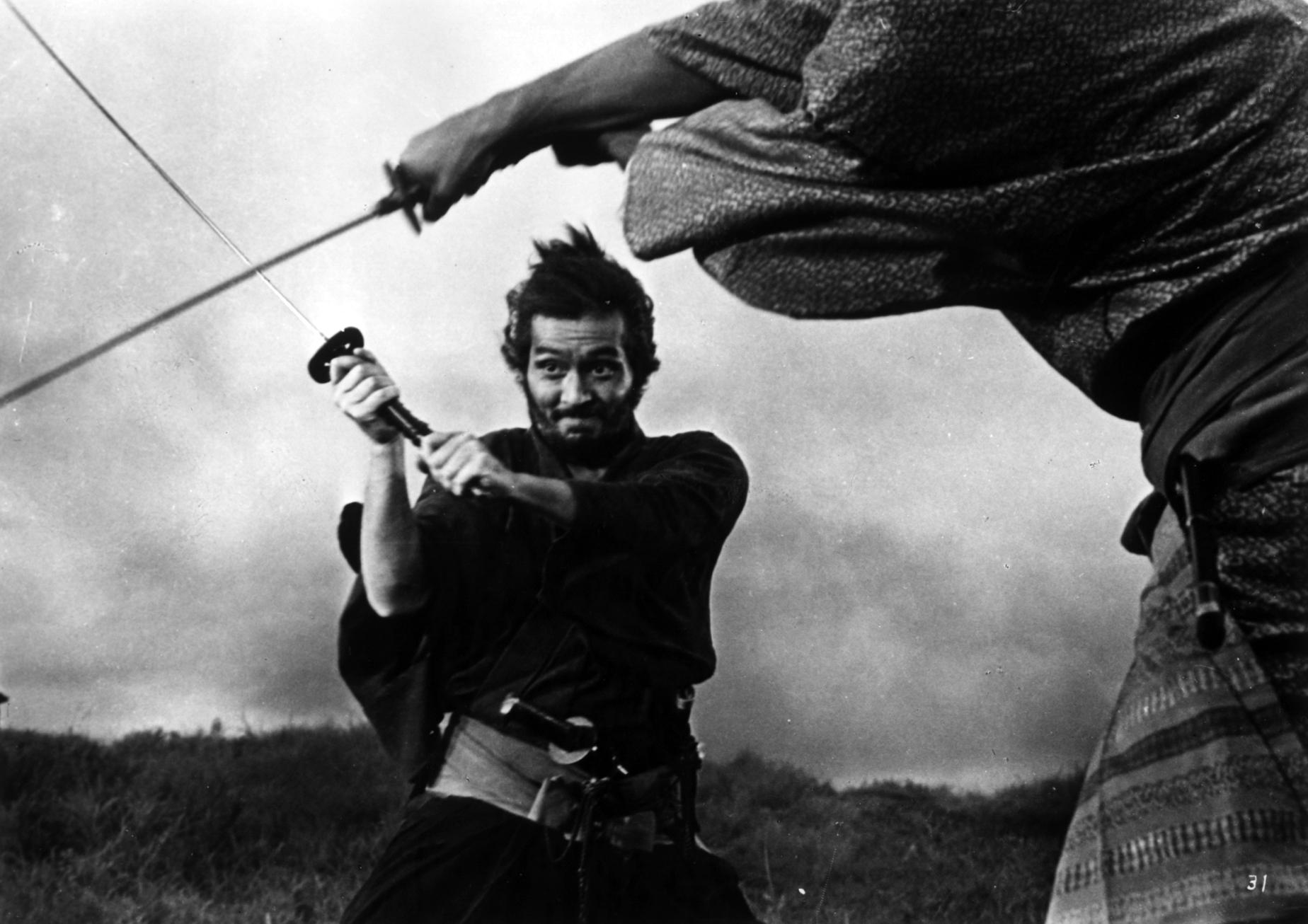
The less said about the plot of this masterpiece, the better for the first-time viewer. When an aging ronin (wandering samurai) presents himself at the residence of a well-respected group of samurai, he announces his plans to kill himself out of shame for his current state of unemployment.
Convinced that this is not a ploy for money or a job, the lord of the house prepares to help send off their guest in style and with respect for his display of courage. But the samurai have badly misjudged the intentions of this man, who has discovered a dark secret lurking behind their proud exteriors.
Throughout this iconoclastic film, the audience can’t help but watch with bated breath as successive revelations alter the nature of the plotline. What we know about the story is only what the lord of the house knows, and as his fear grows, so does our anticipation.
The screenplay and directing brilliantly reveal only what the audience needs to learn to remain engaged. For its age, Harakiri feels surprisingly modern, and its scenes of swordplay match the elegance of its narrative structure. Though lesser known than some classic Japanese films, this taut drama is an absolute must-see.
10. Apocalypse Now
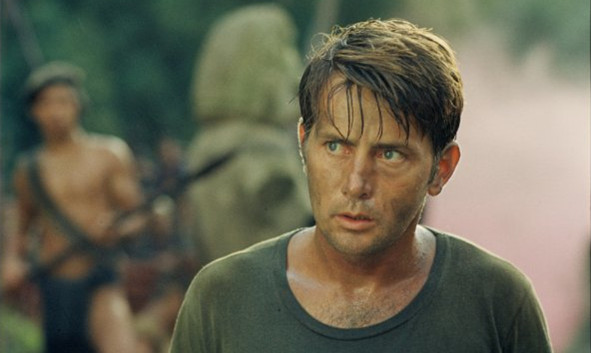
When a young American captain is sent up a Vietnamese river to find and terminate a renegade colonel, it is immediately clear that his mission will be a complex one. Reports have been coming in that Colonel Kurtz has lost his sanity and resorted to brutality in the course of establishing his own private kingdom, and someone has to stop him.
This film perfectly captures the hallucinatory feel of both the specific mission and the larger circumstances in Vietnam at that time. Through lush cinematography of the isolated jungles of Vietnam and a dedicated performance from Martin Sheen, the film’s mood perfectly reflects the distortion of reality that the main character undergoes during his journey.
And who else could be waiting at the end of the river but Marlon Brando? What other actor would we have taken seriously as a brooding, insane misanthrope without being let down when the face was revealed? It was a masterstroke of casting, and Martin Sheen’s acting plays off of Brando’s perfectly.
It’s almost impossible to walk away from Apocalypse Now without being emotionally shaken. The viewer is left in amazement and admiration for how a filmmaker’s vision could have been so flawlessly realized.
Author Bio: Martin Wilson is as enamored of great films as he is of tennis and classic literature. As often as possible, he slips the surly bonds of North Carolina to go galavanting around Europe with his lovely wife, who correctly reminds him that addressing his audience as “gentle reader” is not as clever as he thinks it is.